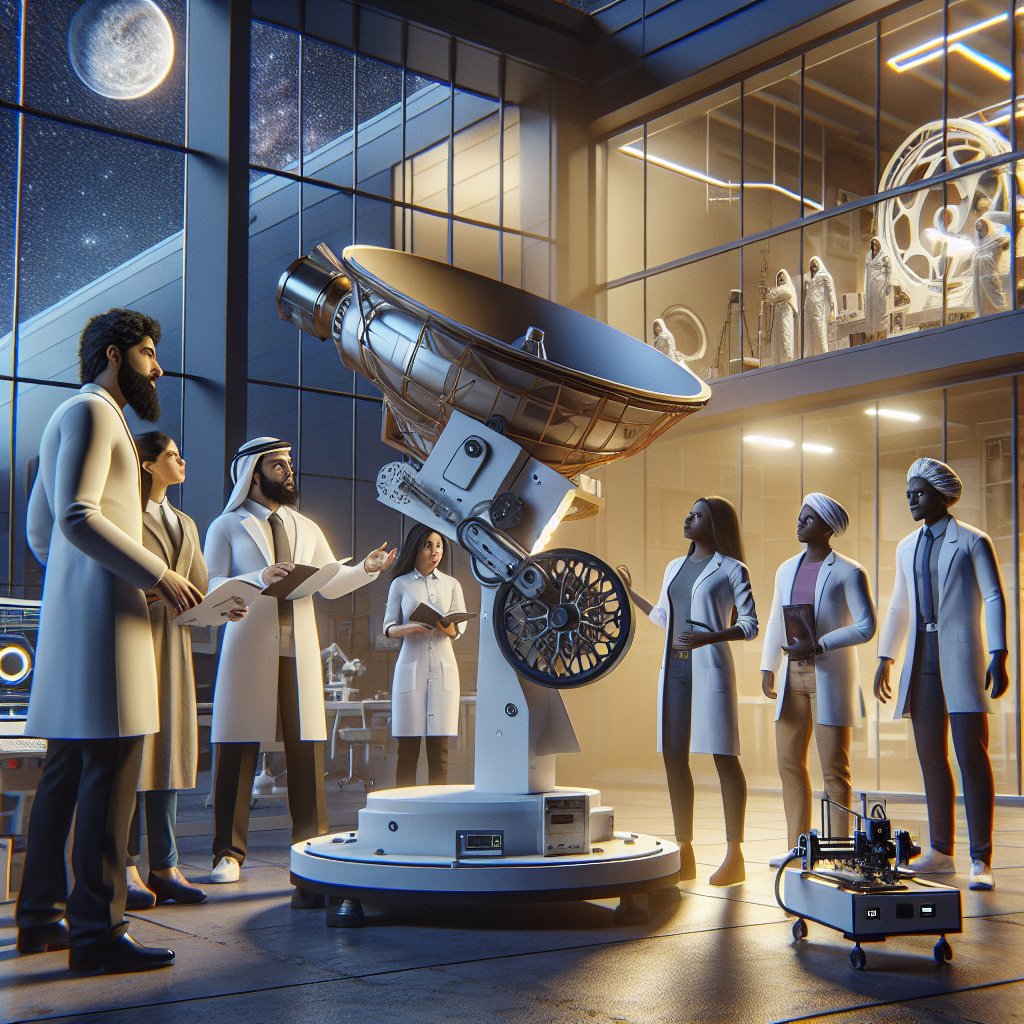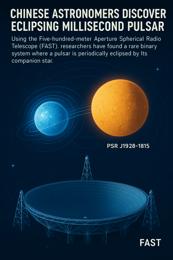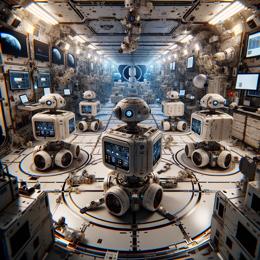Image created by AI
South Africa's UWC Collaborates with NASA on Pioneering Pluto Study
The University of the Western Cape (UWC) in South Africa recently joined forces with the National Aeronautics and Space Administration (NASA) to observe a remarkable celestial occurrence involving Pluto. As the dwarf planet continues its journey away from the Sun, its atmosphere is projected to undergo a dramatic transformation, potentially collapsing and freezing onto its icy surface.
This astronomical endeavor took place on August 4, near Upington in the Northern Cape, an optimal location for viewing. The event in question was the occultation of Pluto – a brief but critical moment when the dwarf planet passes in front of a distant star, blocking its light and thereby offering a window into the characteristics of Pluto's atmosphere. The concept of occultation is akin to a solar eclipse, but instead, it involves a distant star and a far-off celestial body.
Armed with a newly-acquired 0.5-meter telescope – a generous donation from the University of Virginia – the dedicated team from UWC embarked on their space venture. UWC's crew included experts such as Professor Nico Orce, Dr. Siyambonga Matshawule, and Dr. Cebo Ngwetsheni, along with NASA representatives Professors Michael Skrutskie and Anne Verbiscer from the University of Virginia. The anticipation was palpable as Elijah Akakpo and other UWC students and staff had the opportunity to engage in hands-on space research.
A key aspect of this mission was the valuable training experience it offered. Preparing for this rare observation was no small feat; it involved the ingenuity of modifying the telescope through 3D printing technology at UWC's Modern African Nuclear Detector Laboratory. This exemplifies the resourcefulness and innovation thriving within the halls of UWC, melding technology and science to meet the challenging demands of cutting-edge astronomical research.
The night of the observation was a culmination of countless hours of preparation, as the fleeting moment of Pluto's occultation provided a treasure trove of data within a matter of seconds. These insights are of immense value to the scientific community as they seek to understand the complexities of distant planetary atmospheres.
Professor Skrutski emphasized the comprehensive nature of occultation campaigns and their utility in mapping out celestial objects, discovering new satellites, and training the next generation of astronomers. Prof Orce echoed this sentiment, expressing gratification for the laboratory’s support of the NASA mission and the enthusiasm it ignited among the students and staff, illustrating a harmony of science, passion, and dedication.
The successful deployment of the telescope, adjustments to the GPS software, and the collective effort to capture this transitory event are testaments to UWC's commitment to advancing space science. South Africa thus continues to entrench itself as a hub for astronomical research, and the partnership with NASA spotlights the invaluable role of academic institutions in the global scientific landscape.










